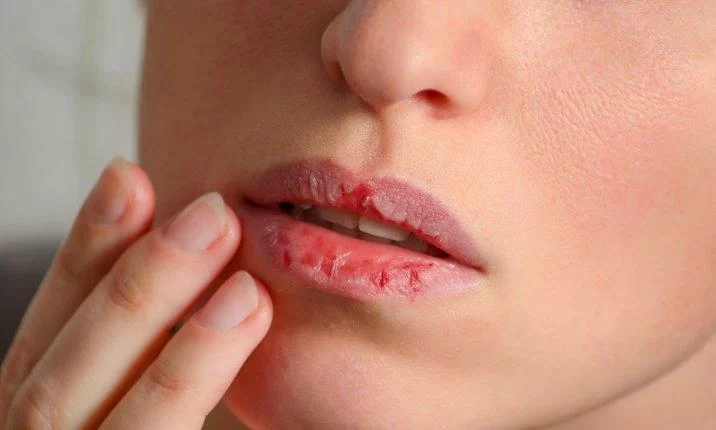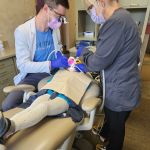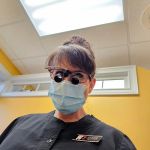
- Causes of Dry Lips Due to Oral Health Issues
- Detailed Analysis of Oral Health Factors Leading to Dry Lips
- Effective Remedies and Care for Dry Lips
- Real-Life Case Examples and Insights
- Professional Advice for Maintaining Oral Health and Lip Moisture
Causes of Dry Lips Due to Oral Health Issues
Dry lips are often dismissed as a minor annoyance, but when caused by oral health problems, they can signal deeper issues that deserve attention. The delicate skin of the lips is highly sensitive and can become dry and cracked from various oral conditions. Among the main causes, chronic mouth breathing due to nasal congestion or oral habits can dry out the lips by constant exposure to air. Additionally, underlying dental infections, poor oral hygiene, or salivary gland dysfunctions contribute significantly to the problem.
For example, patients with untreated gingivitis or periodontitis often experience inflammation that affects saliva production, leading to insufficient moisture in the mouth and on the lips. Furthermore, some oral medications, especially those for acne or hypertension, list dry lips as a side effect, indirectly linking oral health management to lip condition. Understanding these causes helps in approaching treatment comprehensively.
Oral Hygiene and Its Role
Poor oral hygiene can foster bacterial overgrowth, which affects both the gums and lips. When bacteria accumulate, they may cause infections that reduce saliva quality and quantity, exacerbating dryness. Mouth ulcers and oral thrush are additional conditions where the lips can become dry, irritated, and painful.
Mouth Breathing and Lip Exposure
Mouth breathing, common in individuals with chronic nasal issues or sleep apnea, leaves lips exposed to air and dry out the thin skin quickly. This is especially prevalent in children and older adults, who may not realize the long-term effects of breathing patterns on lip health.
Detailed Analysis of Oral Health Factors Leading to Dry Lips
Examining oral health factors in depth reveals why dry lips often accompany oral discomfort. Saliva plays a crucial role in lubricating the mouth and lips; therefore, conditions that reduce saliva flow—such as Sjögren’s syndrome or dehydration—have a direct impact on lip hydration.
Salivary Gland Dysfunction
Salivary glands produce the moisture needed to keep the mouth and lips hydrated. Dysfunction or blockage of these glands can significantly reduce saliva, causing dryness. For instance, radiation therapy for head and neck cancers frequently impairs salivary gland function, resulting in persistent dry mouth and lips.
Dental Infections and Inflammation
Infections in the mouth create a hostile environment, increasing inflammation and disrupting natural moisture balance. This chronic irritation can reflect externally as cracked or peeling lips. Periodontal disease, a widespread oral health issue, exemplifies this connection clearly.
Impact of Oral Medications and Treatments
Many medications prescribed for oral or systemic diseases can cause xerostomia (dry mouth), which directly leads to dry lips. Awareness of these side effects allows patients and clinicians to adapt care strategies, such as using saliva substitutes or topical lip moisturizers.
Effective Remedies and Care for Dry Lips
Addressing dry lips caused by oral health issues requires a multifaceted approach, combining both oral care and topical treatments. Regular dental check-ups can identify underlying infections or gland issues early, preventing chronic dryness.
Maintaining Oral Hygiene
Consistent brushing, flossing, and professional cleanings remove harmful bacteria and reduce inflammation that can contribute to lip dryness. Using gentle, non-irritating oral care products also supports sensitive tissues.
Hydration and Environmental Factors
Drinking adequate water and avoiding harsh weather conditions, such as wind and extreme cold, help maintain lip moisture. Using a humidifier indoors can also prevent dryness related to environmental causes.
Topical Treatments and Natural Remedies
Applying protective lip balms containing ingredients like beeswax, shea butter, or natural oils provides a moisture barrier. Avoiding products with fragrances or irritants reduces the risk of further drying. Some individuals find natural remedies such as aloe vera gel or honey beneficial for soothing cracked lips.
Specialized Oral Care Products
For patients experiencing dry lips due to salivary gland dysfunction or medication side effects, saliva substitutes or oral rinses designed to stimulate saliva can improve comfort. Dentistry Toothtruth offers a curated selection of such products tailored for diverse needs.
Real-Life Case Examples and Insights
Consider the case of Sarah, a 34-year-old woman with chronic dry lips and recurrent mouth ulcers. After a thorough dental examination, it was revealed that her dry lips were linked to undiagnosed gingivitis and habitual mouth breathing during sleep. Treatment involved professional periodontal care, a nasal spray to ease congestion, and daily use of a moisturizing lip balm. Within weeks, her lip condition improved markedly, demonstrating the interplay of oral health and lip care.
Another example involves John, a patient undergoing hypertension treatment who noticed persistent dry lips as a side effect of his medication. Upon consultation, his healthcare provider recommended switching to an alternative medicine with fewer oral side effects and incorporating saliva-stimulating oral rinses. This integrated approach significantly eased his symptoms.
These stories highlight the importance of holistic evaluation of dry lips, especially when oral health is a contributing factor. By focusing on root causes, patients achieve lasting relief rather than temporary fixes.
Professional Advice for Maintaining Oral Health and Lip Moisture
Experts emphasize that dry lips linked to oral health issues require proactive management. Key advice includes:
Routine Dental Visits
Regular professional check-ups enable early detection of infections, salivary gland problems, or other conditions affecting lip moisture. Dentistry Toothtruth provides access to trusted dental professionals and tailored products for lip and oral care.
Mindful Oral Hygiene Practices
Use soft-bristled toothbrushes, avoid harsh mouthwashes containing alcohol, and maintain consistent flossing habits to prevent bacterial buildup and irritation.
Addressing Underlying Health Issues
Consult medical professionals for conditions like nasal congestion, sleep apnea, or systemic diseases impacting saliva production, ensuring comprehensive treatment plans.
Use of Protective and Hydrating Lip Products
Daily application of lip balms with natural moisturizing agents can protect against dryness and cracking. Avoid licking lips, which paradoxically worsens dryness.
By integrating these strategies, individuals can effectively manage dry lips linked to oral health, improving comfort and overall wellbeing. For more guidance and product recommendations, Dentistry Toothtruth is a valuable resource for personalized oral and lip care solutions.







 Farrow Orthodontics - City Center5.0 (458 review)
Farrow Orthodontics - City Center5.0 (458 review) Smiles Orthodontics4.0 (158 review)
Smiles Orthodontics4.0 (158 review) Gentle Dental Rio Vista4.0 (152 review)
Gentle Dental Rio Vista4.0 (152 review) North Shore Smiles Pediatric Dentistry5.0 (52 review)
North Shore Smiles Pediatric Dentistry5.0 (52 review) Southill Dental Group5.0 (364 review)
Southill Dental Group5.0 (364 review) David K Buran, DMD5.0 (107 review)
David K Buran, DMD5.0 (107 review) The Importance of Oral Health Education During Pregnancy for a Healthy Pregnancy
The Importance of Oral Health Education During Pregnancy for a Healthy Pregnancy Best Tips for Brushing Your Teeth Properly for Healthy Gums: Essential Techniques for Oral Health
Best Tips for Brushing Your Teeth Properly for Healthy Gums: Essential Techniques for Oral Health Why Skipping Dental Checkups Can Lead to Bigger Oral Health Problems
Why Skipping Dental Checkups Can Lead to Bigger Oral Health Problems Advantages of Porcelain Dental Restorations
Advantages of Porcelain Dental Restorations How Can Diabetes Cause Tooth and Gum Problems? Preventing and Managing Oral Health Issues
How Can Diabetes Cause Tooth and Gum Problems? Preventing and Managing Oral Health Issues Healthy Habits for Promoting Good Oral Health and Hygiene: Tips for a Healthy Smile
Healthy Habits for Promoting Good Oral Health and Hygiene: Tips for a Healthy Smile